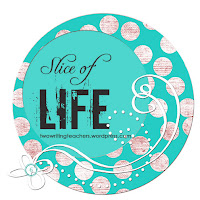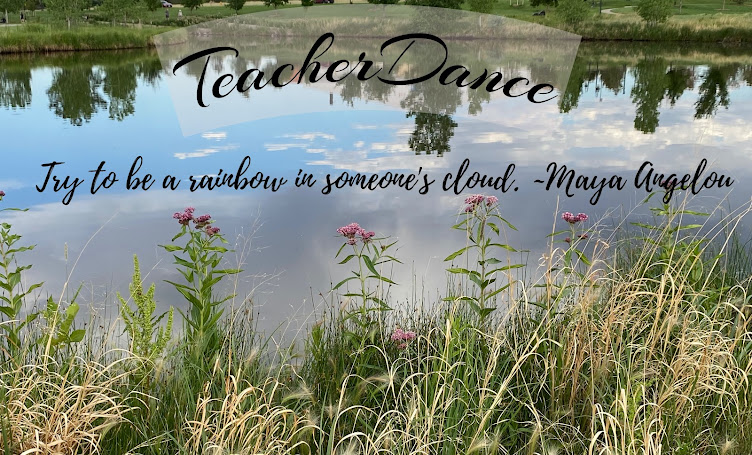The March Slice of Life Challenge- Is Nearly Over...
Thanks to Ruth and Stacey, at Two Writing Teachers for all their work to facilitate this- 26 of 31
Thanks to Ruth and Stacey, at Two Writing Teachers for all their work to facilitate this- 26 of 31
Tweet at #Slice2013
 We’ve all been writing, writing,
thinking about writing, then doing more writing! Stephen King, in On Writing says: If you want to be a writer, you must do two things above
all others: read a lot and write a lot. There's no way around these two things
that I'm aware off, no shortcut.
We’ve all been writing, writing,
thinking about writing, then doing more writing! Stephen King, in On Writing says: If you want to be a writer, you must do two things above
all others: read a lot and write a lot. There's no way around these two things
that I'm aware off, no shortcut.
I have improved my own writing through the years by writing for myself,
and by writing with my students.
Audience is important as well as writing for oneself. When I taught my
students, I thought it was important for them to write—a lot. There were formal assignments, but also I did
many kinds of things that required writing, some creative and some quick
writing that was both practice and a depository for ideas. Many of my students became more accomplished as writers and I wanted to engage them with varied experiences, many through choice,
readying them for their next steps of high school. Here is a list of things that were written
communication that occurred in my class.
This doesn’t even count other writing students did in the other
classes they chose to take in what we called a ‘matrix’ choice program.
What ‘informs’ the student
learning in this area? The top goal is
that writing is for communication, and different audiences demand different
kinds of writing. We discussed audiences
and point of view quite a lot during workshop and when new assignments were
given.
Writer’s
notebooks-includes many types of exploration, and students were encouraged
to try new types of writing in this non-risky environment. I responded to their written
entries.
Writing within the workshop, brief lessons: show/tell
paragraphs (identifying what is simple telling, that needs showing for
elaboration, as in “she is lonely”—give descriptions that ‘show’ the word,
etc.); writing narrowly—using things like ‘windows’ cut into a piece of
cardboard-to write only what is seen, not too broad; introductory and concluding paragraphs, compare/contrast, etc.
Letter journals (3 times a week)-a
personal piece just to me, but I asked them on Wednesdays to comment on their
current book choices, how the book is going, what they think of the author’s
style, etc. I replied to the letters, but briefly.
Workshop writing also included direct study of different
genres—fiction (character
descriptions, leads, endings, dialogue, setting descriptions), personal essays
(memoir, opinions, nature writing, etc.), poetry, humor writing, plays,
literature comparison, book reports
Unit writing from research included: outlines and
webbing, short paragraph descriptions, timelines, short and long research
reports, speeches, magazine-type articles, mock newspapers and/or articles,
booklets and brochures, poetry, picture books, map keys, captions, labels,
advertisements, cartoon speech, lab reports, scientific observations, writing in the style of other writers, bibliographies (sometimes
annotated), letter writing, thank you notes, directions for games and other
devices,
Field journals included: nature
writing, scientific observation paired with sketching, data collection, poetry
Misc. writing
done in the past, often to support the class unit: oral histories, discussion article responses,
many of the pieces listed in the unit writing list, curriculum
Personal work: Portfolio Evaluations-letter & short answer,
applications for things in and out of school, thank you notes for
various experiences
It’s a comprehensive list,
although I probably forgot something.
I wonder if you’ve made a list of the varied writing your students are
doing? It’s probably much more than you've considered.


Great list, Linda. You gave your students such variety and writing volume. I love your blog.
ReplyDeleteThank you!
DeleteI want to be a student in your class and I want my writing students to be in your class. I was reading your list of types of writing you taught and thinking - HOW? How did she get to it all? With 30 minutes of writing a day I feel like I am barely scratching the surface and have not covered enough ground. I am feeling that panic a bit of only 10 weeks of school remaining and so much left that I wish for them to know.
ReplyDeleteI think one of the ways it happened is that I have the class all the time, except Tuesday and Thursday mornings. And even then I had half for an hour. That was often a good time to do some writing and sharing together with just half. Thanks Dana!
DeleteI would love to be in your class. I think I would learn so much.
ReplyDeleteI miss having a class, but it's also great to talk with all the teachers about what they're doing, what they want to do! Thanks for the compliment, Ruth!
DeleteI sometimes list what we have written in class, because students don't necessarily realize how much they have written. I like that you made a list with elaboration. Gives an example of possibilities.
ReplyDeleteI agree with you, Terje. The list is helpful for the students too & when they do portfolios, they can look back & be pleased at the accomplishment! Thank you!
DeleteGreat list, Linda. And then there's all the online stuff, right?!
ReplyDeleteSee I knew I'd forgotten something. Yes, they compose there too! I'm on Facebook with some of the alums & they write quite a lot on FB! Thank you for reminding me!
DeleteWhat a great summary of the writing your class is involved in. We srite a lot as well - love our writer's notebook the most. So much is done with it.
ReplyDeleteI'm glad to hear you write a lot, Beverley. 10,000 hours rule, etc.! I hope you write about your classroom too sometime!
DeleteWhat a great resource you have created just by listing the types of writing. So much learning is cemented simply by writing.
ReplyDeleteI am a crazy list maker, & sometimes it's a good tool for evaluation of something, for my students too. I really agree with your last sentence, Elsie! Thanks!
DeleteI love this post, Linda. All year I have been stressing to the teachers I coach that kids need to read and write all day every day! I've tried really hard to model that for them, and build in lots of different opportunities for reading and writing. I would love to share this post with them. Would that be ok with you?
ReplyDeleteI can do a reading list, too, Carol, but amazingly, I haven't yet. It is important to me, & my students did become better because we wrote. Of course you can share-I hope it helps in some way. I have the same problems sometime, so I know what you mean about the persuasion! Thanks.
DeleteI think I want to be in your class for a while! I actually miss writing assignments sometimes. I think that's one of the reasons I love this sol challenge so much!
ReplyDeleteBut you write too, right? it's just so different in kindergarten, I know. Thanks, Robin!
DeleteIt is great to see that so many types of writing can be on the same list. How wonderful for your students to engage in so many different means of communicating a message and feel that each is equally important!
ReplyDeleteThank you Betsy. Yes they've done a lot of different things, & I really believe that variety is important too.
DeleteWow, this is a great list, Linda! How did you fit all these things in? I've done some of them, but I've really struggled this year finding time for all the variety of reading and writing workshop activities that I want to do in our measly 45 minutes a day! I've improved a lot since the beginning of the year, but I still have a long way to go...
ReplyDeleteReally, the difference, Jennifer, is that I had the students all the time except for those Tues. & Thurs. mornings & math times in the afternoon 3 times a week. And I could work with part groups & individually as well. Work was happening all the time, just not all the class all the time. If you look at the assignments, they happened when a student, or more than one, needed to do it. Then I would give support about the kind of writing, etc. And much was also done as homework. Thanks!
DeleteLinda,
ReplyDeleteLove your list. I am so glad to be around like minded people.
Thanks Jone, but I just said to someone I think it's like preaching to the choir. Oh well, learning from each other is still a great thing.
DeleteLinda, this is a great list. I'm going to print it out and put it in my writer's notebook to inspire me to write often and to write in a variety of genres with my students. I', thinking about our mini-inquiry projects. I had planned for students to do a compare/contrast paragraph(s) about their topic of interest in China and Egypt. Maybe I'll let them do a picture book, brochure, or magazine article. Sorry this is so long-I just did some of my thinking and planning here! :)
ReplyDeleteSo glad it's helpful Ramona. I suspect all of us could have a grand conversation about all the writing we do and that we try to do. Your possible projects sound good! They could still compare/contrast, but put it into the picture book, brochure, or ... Thank you!
Delete